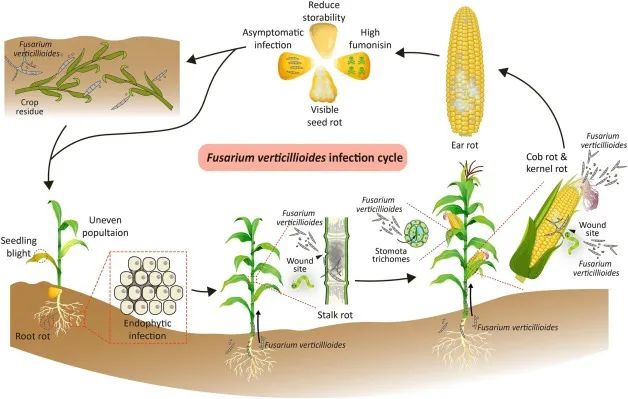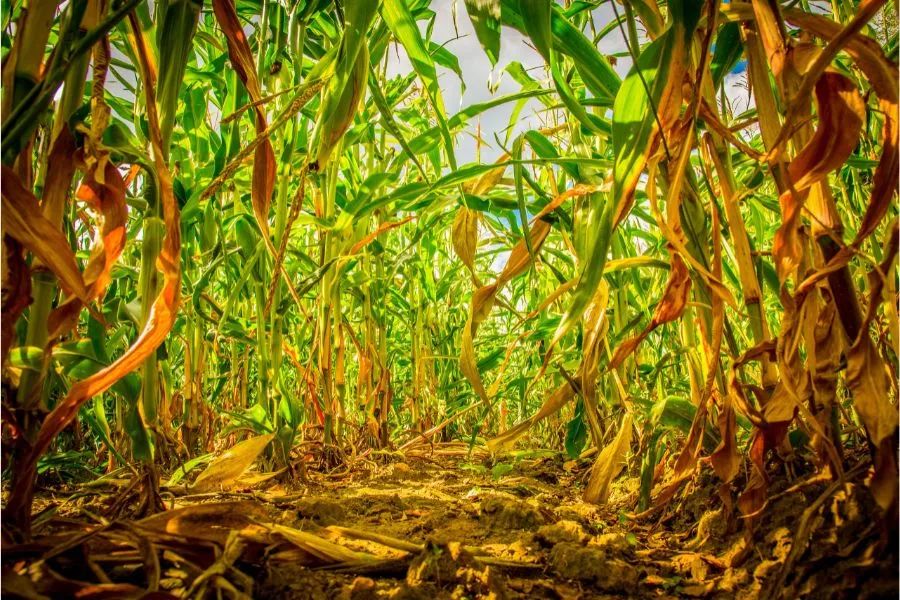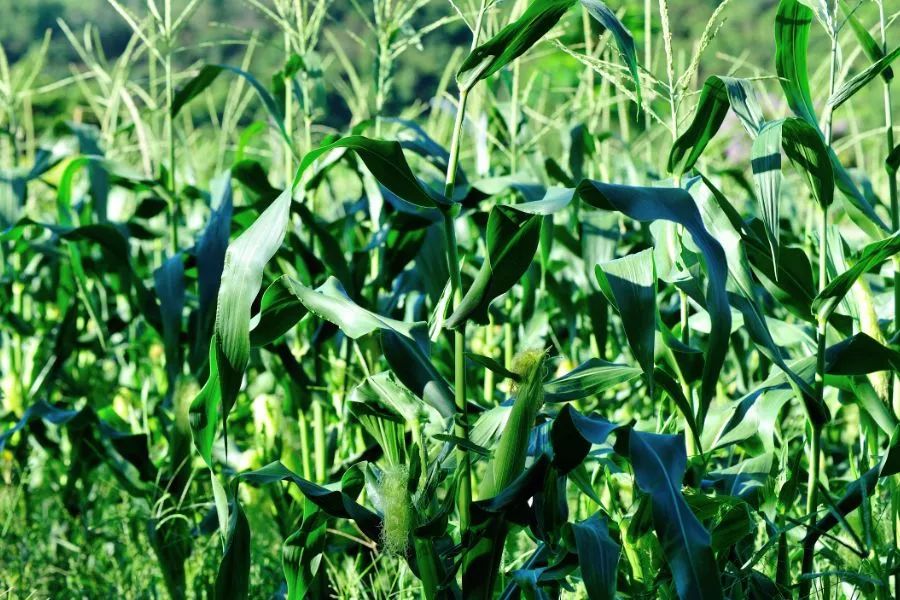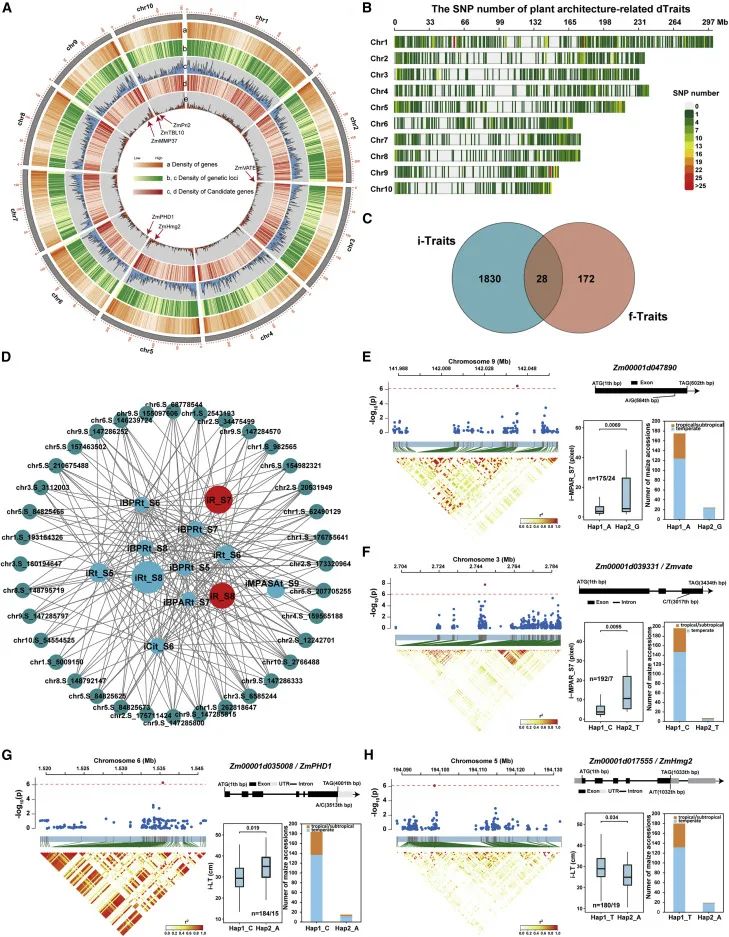分子标记辅助选择 助力玉米抗病性改良
玉米是世界上主要的粮食作物,也是“饲料之王”和重要的工业及能源原料。常规育种技术周期长、优良亲本自交系选择率低,很难在短时间内选育出所需要的品种。近年来,单倍体育种、分子标记辅助育种、基因编辑育种等生物技术的应用,提高了玉米育种的效率,开辟了玉米育种的新途径。
Maize is the world's main food crop, also known as the "king of feed" and an important industrial and energy raw material. Conventional breeding techniques have a long cycle and low selection rate of excellent parental inbred lines, making it difficult to select the desired variety in a short period of time. In recent years, the application of biotechnology such as haploid breeding, molecular marker assisted breeding, and gene editing breeding has improved the efficiency of maize breeding and opened up new avenues for maize breeding.
分子标记辅助选择(Molecular Marker Assisted Selection, MAS)是通过筛选与目标性状调控基因紧密连锁的分子标记,而不是基于性状本身进行选择的育种选择策略,将分子标记技术与传统育种相结合,具有高效、可靠、安全等优点,可以在作物全生育期进行选择,极大地缩短了育种年限。
Molecular Marker Assisted Selection (MAS) is a breeding selection strategy that selects molecular markers that are closely linked to the regulatory genes of target traits, rather than selection based on the traits themselves. The combination of molecular marker technology and traditional breeding has the advantages of high efficiency, reliability and safety, and can be selected during the whole growth period of crops, greatly shortening the breeding life.
分子标记辅助选择的优点
Advantages of molecular marker-assisted selection
分子标记的应用极大地提高了性状选择的效率和准确性,在玉米育种中,分子标记辅助选择是通过分析与目标基因紧密连锁的分子标记来判断目标基因是否存在,大大加速目标基因的转移和利用,从而提高回交育种的效率,较早淘汰不利相关性状,设计和培育理想品种。
The application of molecular markers has greatly improved the efficiency and accuracy of trait selection. In maize breeding, marker-assisted selection determines the existence of target genes by analyzing molecular markers closely linked to target genes, greatly speeding up the transfer and utilization of target genes, thereby improving the efficiency of backcross breeding, eliminating unfavorable related traits earlier, and designing and cultivating ideal varieties.
图片来源:sciencedirect.com
病害的发生程度与环境密切相关,自然发病观察到的表型是基因型、环境、病原菌三方互作的结果,误差较大。而人工接种鉴定工作量大,成本较高。因此通过主效抗病基因的分子标记对抗性进行选择,比传统的表型选择更具优越性。分子标记辅助育种诞生以来,其使用最成功的方面就是抗病性改良。
The occurrence degree of disease is closely related to the environment, and the phenotype observed in natural disease is the result of the interaction of genotype, environment and pathogenic bacteria, and the error is large. However, the work of artificial inoculation identification is heavy and the cost is high. Therefore, selection by molecular marker resistance of major resistance genes is more advantageous than traditional phenotypic selection. Since the birth of molecular marker-assisted breeding, the most successful aspect of its use is the improvement of disease resistance.
分子标记辅助选择在玉米抗病育种中的应用
现阶段我国玉米生产中的大部分常见病害,如穗腐病、丝黑穗病、大斑病、灰斑病、南方锈病、茎腐病、粗缩病、矮花叶病等,都已克隆到一些相关基因,并可以开展分子标记辅助改良的工作。通过MAS首次成功地改良了我国骨干玉米自交系粗缩病抗性。利用分子标记辅助选择技术和回交转育技术,获得单抗丝黑穗病和单抗茎腐病的玉米自交系。通过标记辅助的基因聚合,抗玉米叶枯病和南方锈病基因/QTL也被聚合到5个优良玉米品系中。利用抗南方锈病基因进行分子标记辅助选择, 组配出抗南方锈病的改良品种。利用MAS技术对黑穗病感病的10个玉米自交系进行抗性改良,在黑穗病抗性上均表现出明显的提高。其他一些玉米病害,如叶部病害灰斑病,病毒病害矮花叶病、大斑病等,都已经有较为成熟的分子标记辅助育种技术,并初步用于育种改良工作。
展望
Outlook
MAS是玉米育种工作中必不可少的部分,随着玉米育种技术的发展,更要将现代生物技术与传统育种相结合。MAS在目前的应用上,多数还是单基因控制的优良性状的改良,对于主效基因的导入已经取得不错的进展,但在多个优良性状上的聚合还有所欠缺。在传统育种中,要利用好分子标记育种技术、基因编辑技术以及转基因育种技术等解决传统育种在获得高产优质、抗性好的新种质上的难题。相信随着玉米转基因育种放开、SNP的完善和普及,以及基因克隆和全基因组关联分析(GWAS)的应用,在未来几年内,分子标记辅助选择育种与其他生物技术联系会更加密切,玉米育种工作会迎来新的技术革命。
图片来源:sciencedirect.com
参考文献:
2、分子标记辅助选择在玉米育种中的应用
3、分子标记辅助选择的遗传学基础







